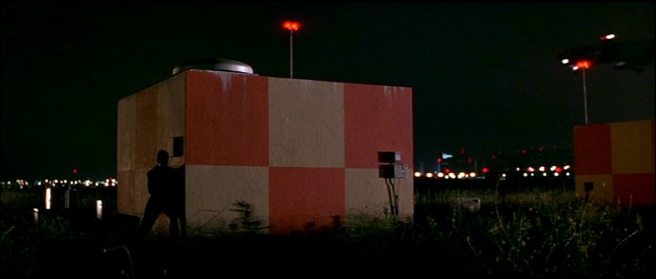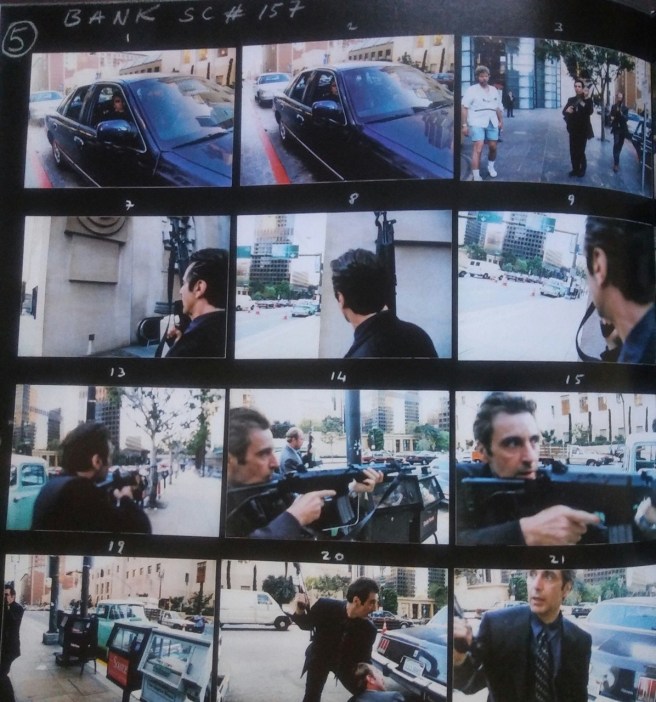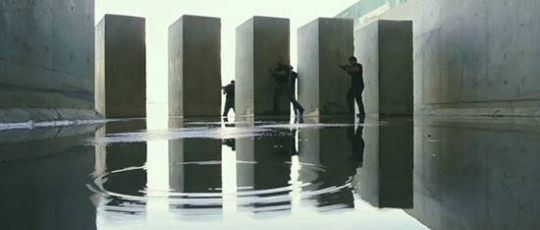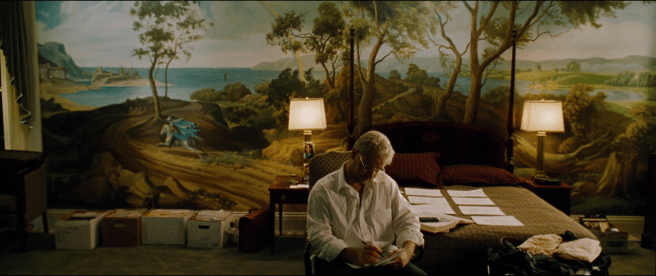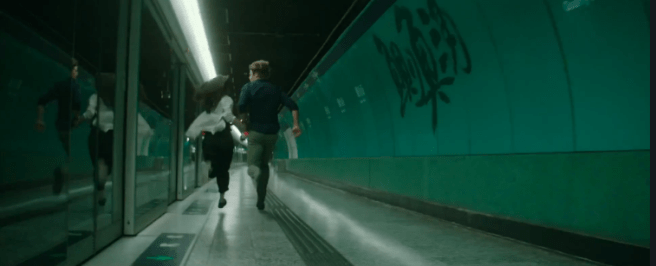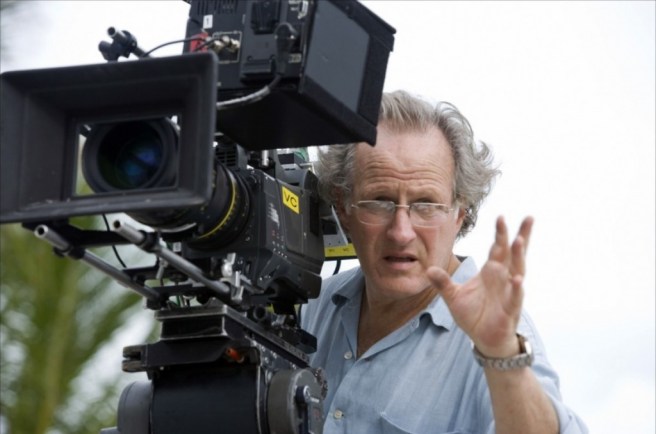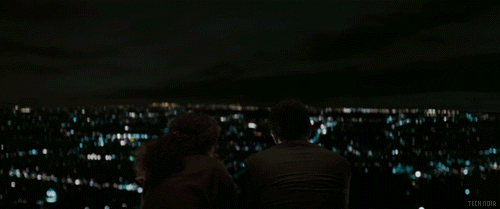
Collateral. My third viewing. (Ignore my comments after the second.) It feels like every time I watch a Michael Mann movie it becomes my new favorite of his.
This movie is seriously in love with LA, too. You almost never get this much richness in setting. The surfaces, the light, daytime and night. Passing scenes and shots of a Hispanic gas station, a Korean (?) newspaper, murals, traffic, strip malls, modest neighborhoods, airport boulevards. Crucial scenes in Latino and (mostly Asian) nightclubs.
This sense of place fits with one of the movie’s themes – presence. Our protagonists are Vincent (Cruise’s cool, decisive, efficient professional) and Max (Foxx’s daydreaming perfectionist). Max is dreaming miles into the future, but too hesitant or cautious (“It’s gotta be perfect.”) to do anything to get there. Vincent is skimming along the moment, zipping through assignments. (“We gotta make the best of it, improvise, adapt to the environment, Darwin, shit happens, I Ching, whatever man, we gotta roll with it.”)
Two early soundtrack moments underscore the contrast, too. Early on, Max enjoys the nostalgic, old-school vibes of Groove Armada’s Hands of Time as he cruises through the city. Soon after, we see some of Vincent’s subway/disconnection speech (foreshadowing!) backgrounded with a cool blues-y rendition of Bach’s Air on the G String. Pure sophistication. It’s not until (after the missed-opportunity soliloquy in the jazz club scene) Max is forced into impersonating Vincent that he starts to show some real agency.
On this viewing the humor came through much more for me, thanks to Cruise. Lines like “Promise not to tell anybody, right?” and “Don’t let me cornered. You don’t have the trunk space.” and “What? I should only kill people after I get to know them?”. I could go on. What a damn great movie.


